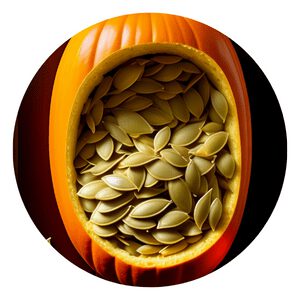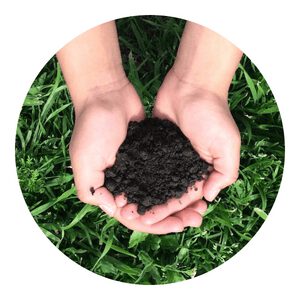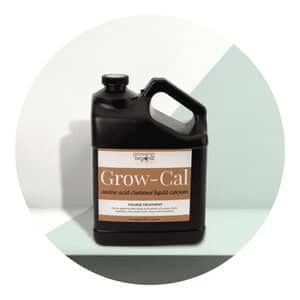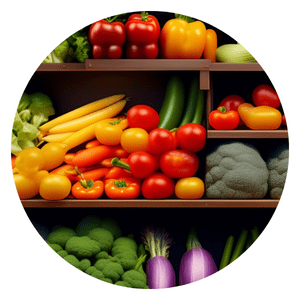How to Prepare the Soil For a Vegetable Garden
Creating a vegetable garden is an exciting and rewarding experience.
There are many steps in the process, but one of the most important is preparing the soil.
Without healthy, nutrient-rich soil, your vegetables won’t thrive even with plenty of sun and water.
This article will provide a detailed guide on how to prepare the soil for a vegetable garden, from testing its pH level to adding compost and manure.
Soil Prepare Menu
Soil preparation in creating a thriving vegetable garden.
Soil preparation is a key factor in creating a successful vegetable garden.
It involves improving the soil structure, adding necessary nutrients and amendments to make it suitable for growing vegetables.
It also includes removing stones, weeds and any other debris that could prevent plants from growing well.
Tilling is one of the most important steps of soil preparation as it breaks up the existing soil structure and helps create better drainage.
Additionally, adding compost or aged manure can help provide essential nutrients to the soil while improving its water-holding capacity.
To control pH levels in the soil, lime may be added to make it more alkaline while sulfur can be used if it needs to be made more acidic.
Weeding is another important aspect of preparing the soil for a vegetable garden as some weeds can compete with your vegetables for water and nutrition which will affect their growth negatively.
Additionally, pull out any large stones or rocks that could affect root growth when planting your vegetables.
After these steps have been completed, you should have a nutrient-rich bed ready for planting your desired vegetables!
The benefits of organic methods
Organic methods of soil preparation are the best way to ensure that your vegetable garden is full and healthy.
Organic methods involve natural processes like composting and mulching, which help to improve the soil structure and increase its fertility.
These practices also help to reduce the need for chemical fertilizers or pesticides, which can be harmful to both the environment and your plants.
Compost adds nutrients back into the soil, increases its water holding capacity, reduces erosion, and improves its structure by providing organic matter that helps retain moisture.
Mulch helps insulate soils against temperature changes while also suppressing weeds.
This reduces time spent weeding as well as potential need for herbicides.
Additionally, adding organic material such as manure helps increase nutrient availability in the soil without introducing synthetic chemicals that could damage plant health or contaminate ground water sources near your garden site.
With these simple techniques you can create a healthy gardening environment with fewer inputs than traditional methods require.
How to assess the soil's condition
Soil testing is the first step in assessing the soil’s condition before beginning the preparation process.
With help from an online tool or local agricultural extension office, homeowners can use a sample of their soil to determine its pH level and nutrient content.
This information helps gardeners identify any deficiencies in the soil that should be addressed–for example, by adding fertilizer or lime–before they start planting.
In addition to testing the soil, homeowners should look for signs of pests such as grubs, beetles, or nematodes.
They should also check for weed growth and remove any existing weeds to reduce competition for nutrients and water later on.
If needed, protective mulch can be added around plants to prevent weeds from taking hold again during the gardening season.
Finally, it’s important to address drainage issues; soils with poor drainage can quickly become waterlogged and cause root rot in plants.
By addressing these issues up front, homeowners will save time and effort in maintaining a healthy vegetable garden throughout the season.
The use of compost as an essential organic fertilizer
Compost is a key element for successful vegetable gardens.
It is full of nutrients and beneficial microorganisms that helps create healthy soil for your garden.
When preparing the soil for a vegetable garden, it’s important to add plenty of compost to make sure the plants have what they need to grow strong and healthy.
Compost can also help retain moisture in the soil, prevent weeds from taking hold, and increase aeration so that oxygen can reach the roots of veggies more easily.
To prepare your soil, simply spread 2-3 inches of compost over the area and mix it gently into the top 6-8 inches with a shovel or trowel.
You can use store-bought compost or make your own if you prefer.
Ensure that all materials used are organic (free from chemicals) or you will risk contaminating your vegetables with unwanted toxins.
Once added, give the ground time to settle before planting your vegetables as this will ensure better absorption of nutrients in your future harvest!
How to make your compost
To make your own compost, collect organic materials from your garden and kitchen.
Start by collecting leaves, grass clippings, small twigs and branches, vegetable scraps and fruit peels.
When you have a sufficient amount of organic material for composting, it’s time to set up the compost bin.
To do this, find a spot in your garden that has good drainage.
Place the collected organic material in the bin and mix it together with soil or soil-less potting mix to provide air circulation within the pile.
Once the materials are in place, add water until they are moist but not soggy.
As the materials break down over time due to bacteria and fungi action within them, turn or stir them every few weeks to speed up decomposition and ensure even breakdown of all components.
The compost is ready when it looks like loose dark soil with an earthy smell – usually after around 6 months or so – which can then be used as a rich fertilizer for your vegetable garden!
The use of manure as a natural fertilizer
Manure is a great natural fertilizer for vegetable gardens.
It adds nitrogen and other essential nutrients to the soil, helping plants develop strong roots and produce healthy fruits and vegetables.
Composting manure before applying it to the garden helps break down organic material into a form that can be more easily absorbed by plant roots.
To prepare the soil for a vegetable garden, spread two or three inches of composted manure over the area you plan to plant in.
Work it gently into the top 6-8 inches of soil using a tiller or hoe, taking care not to compact the soil too much as this will reduce aeration and drainage.
Finally, water your prepared bed thoroughly before planting seeds or seedlings.
The benefits of using green manure
Green manure is a great way to improve the quality of your soil.
It adds organic matter, nutrients, and beneficial soil microbes that help promote plant growth.
To use green manure in your vegetable garden you will need to till or plow it into the soil before planting.
This will allow for the decomposition process to begin and the nutrients to be released over time.
You can also cover crop with green manure before tilling it in which helps build up organic matter in the soil and reduce erosion.
Additionally, adding green manure during planting season helps prevent weeds from taking over while providing additional nutrition for crops.
When using green manures, make sure you select varieties that are appropriate for the climate and growing conditions of your area as well as ones that are not invasive or harmful to native species of plants.
Finally, when incorporating green manures into your garden make sure to follow instructions on how much should be used per square foot or acre depending on your size of garden space for optimal results.
Prepare the soil with organic fertilizer, It will enrich and help your garden grow. Spring into summer the plants will thrive, Bugs won't bug you, no need to survive. Nature is great at giving a hand, Organic fertilizer helps the land. Fruits and vegetables are just a must, With natural compost tilled in the crust.
Chappy The Gardener
How to choose and apply the appropriate organic fertilizers
Organic fertilizers are a great way to provide essential nutrients and minerals to vegetable plants.
When selecting an organic fertilizer, consider the type of soil and what types of vegetables you will be growing.
For example, if your soil is acidic, select a fertilizer that is specifically designed for acidic soils.
If you are growing heavy feeders like tomatoes or peppers, choose an organic fertilizer with a higher nitrogen content.
It’s also important to consider the release rate of the fertilizer because too much nitrogen can burn plant roots.
Slow-release fertilizers are best for this situation as they release their nutrients gradually over time, preventing any burning from occurring.
Once you’ve chosen your organic fertilizer product, apply it around the base of your plants according to the directions on the package or those recommended by your local garden center professional.
Be sure not to cover up any foliage as this could cause burning from direct contact with the product.
Additionally, keep in mind that most organic fertilizers need to be reapplied every few months in order for them to remain effective and give your plants steady nutrition throughout their growth cycle.
The benefits of crop rotation
Crop rotation is a very beneficial method to use in any vegetable garden.
It helps to keep the soil healthy, avoid pests and disease from developing, and provide nutritious food for plants.
To begin crop rotation in a vegetable garden, start by mapping out the different crops you plan on planting for each season.
Try to plant crops that have similar needs together so that they can benefit from each other’s nutrients and environment.
For example, it’s best to group root vegetables such as carrots and potatoes together with legumes like peas or beans since they all require nitrogen-rich soil.
When designing your map of crop rotations, try to also consider which plants will follow well after each other seasonally as some crops take longer than others to grow.
Once your map is created, you can start planting accordingly throughout the year ensuring that no two plants are in the same spot more than once every three years or so.
By using this method of crop rotation, you’ll be able to ensure healthier soils and better yields for your vegetable garden!
The role of cover crops in preparing and enriching your soil
Cover crops are an important and beneficial tool for preparing soil for vegetable gardening.
Cover crops can improve soil fertility, organic matter, and overall structure.
They also suppress weeds, reduce erosion, conserve water, attract beneficial insects, and provide habitat for wildlife.
Additionally, some cover crops act as a natural fertilizer when tilled into the soil.
Cover crops can be planted between regular crop cycles to build up the organic matter content of the soil without disrupting existing plantings.
Legumes such as clover or alfalfa fix nitrogen from the air and make it available to other plants in their root zone.
Other types of cover crops like rye or oats have deep roots that help break up compacted soils while their residue adds organic matter to the surface layer of your garden plot when turned under with a tiller or shovel before planting vegetables.
Green manures such as buckwheat or annual ryegrass add minerals to your soil which will benefit future plantings.
Cover cropping is easy to incorporate into any garden plan and is especially helpful if your soil is poor quality or has been recently disturbed by construction projects around your home.
Cover cropping also helps reduce weeds when used in place of chemical herbicides which can damage nearby vegetation and waterways if misused by homeowners unfamiliar with proper application techniques.
The added benefits of improved fertility and structure makes cover cropping well worth taking the time to prepare your garden’s soil for better harvests in years ahead!
The use of natural pest control methods
One of the most important steps in preparing the soil for a vegetable garden is to control pests.
Natural pest control methods such as companion planting, rotating crops, and encouraging beneficial insects can help reduce or eliminate pest problems without the use of chemical pesticides.
Using natural pest control also helps improve soil health by introducing beneficial bacteria and fungi, increasing biodiversity, and improving nutrient cycling in the soil.
Companion planting involves growing different plants together that have known pest repelling properties.
Plants such as marigolds are known to repel harmful pests like nematodes from attacking other plants in a garden.
Rotating crops helps to disrupt the natural growth cycle of pests which reduces their ability to reproduce and damage the crop.
Encouraging beneficial insects such as ladybugs can help naturally control pests while also providing pollination benefits for fruits and vegetables.
Finally, using organic matter such as compost or mulch can improve soil health by helping to retain moisture, increase nutrient availability, breaking down contaminants, creating better drainage channels for water infiltration, and reducing erosion on hillsides or slopes.
All these practices combined will provide an ideal environment for vegetation growth with minimal impact from pests while still maintaining healthy soils over time.
In conclusion, organic methods and organic fertilizers are essential components when it comes to preparing your vegetable garden’s soil for optimal growth and health.
Not only do they help to provide necessary nutrients, but they also keep the soil healthy by improving soil structure and encouraging beneficial organisms.
Additionally, there is an environmental benefit to using organic fertilizer as opposed to synthetic chemical-based fertilizers.
Taking the time to research and understand these methods will help ensure that your vegetable garden thrives for many years to come.
Click To Grow
Helps Us Grow – Share If You Like



















